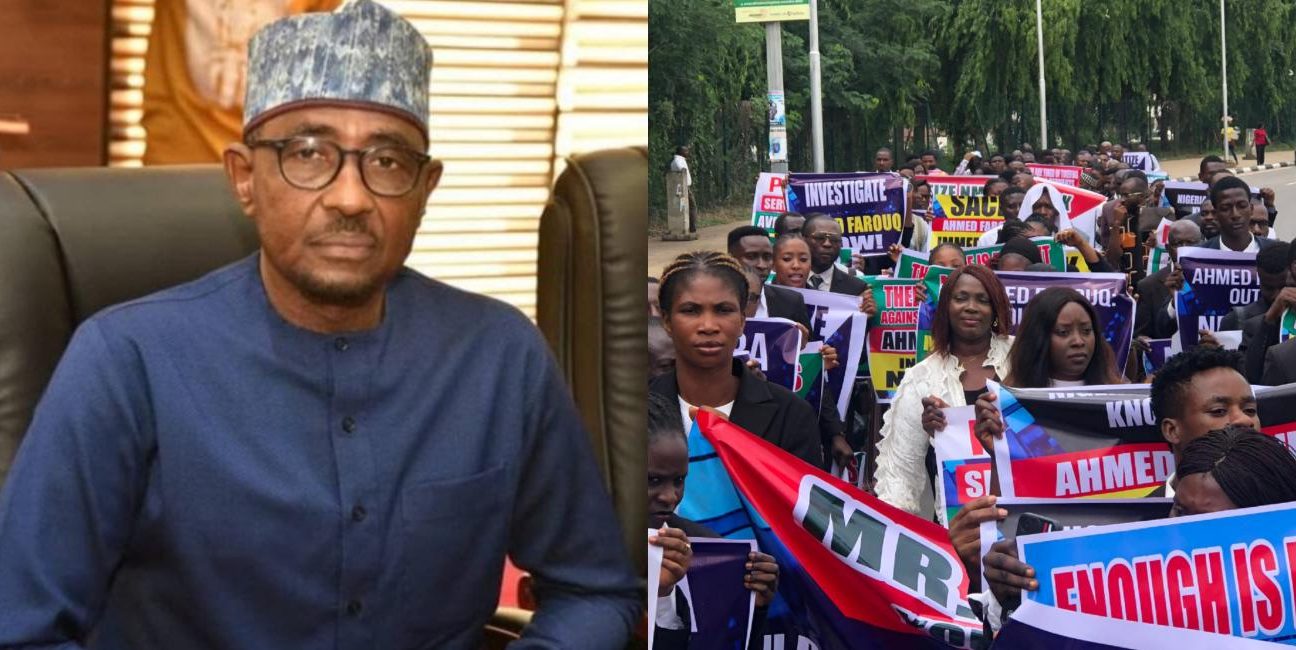Abuja, July 8, 2025 — A coalition of over 500 lawyers under the aegis of the Coalition of Concerned Lawyers for Justice and Accountability on Monday besieged the Presidential Villa and the National Assembly Complex in Abuja to submit a formal petition against the Chief Executive Officer of the Nigerian Midstream and Downstream Petroleum Regulatory Authority (NMDPRA), Farouk Ahmed, over alleged corruption and abuse of office.
The legal practitioners, dressed in their official robes and carrying placards with inscriptions like “End Corruption in NMDPRA” and “Public Office is Public Trust,” presented a petition detailing several allegations ranging from financial impropriety to procurement irregularities and nepotism within the NMDPRA.
Speaking on behalf of the group, Barr. Clement Ogbodu stated that the petition is a call for accountability and a test of the current administration’s anti-corruption resolve. He disclosed that the lawyers were compelled to act after receiving credible information and documents allegedly implicating the NMDPRA boss in multi-billion naira contracts that flouted due process.
“As members of the Nigerian Bar, we have a constitutional and ethical duty to uphold the rule of law and fight impunity. We are submitting this petition to both the Executive and Legislative arms of government, urging a full-scale investigation into the operations of the NMDPRA,” Ogbodu said.
The petition was received by officials at both the Office of the Secretary to the Government of the Federation (SGF) and the Clerk of the National Assembly. It calls for President Bola Tinubu to suspend Mr. Ahmed pending the outcome of an independent investigation, and for the anti-graft agencies, including the EFCC and ICPC, to take immediate action.
As of the time of this report, the NMDPRA has not officially responded to the allegations. Efforts to reach its spokesperson for comment were unsuccessful.
The move comes amid growing public concern over transparency and accountability in the management of Nigeria’s petroleum regulatory institutions, especially following recent subsidy and pricing policy reforms.
